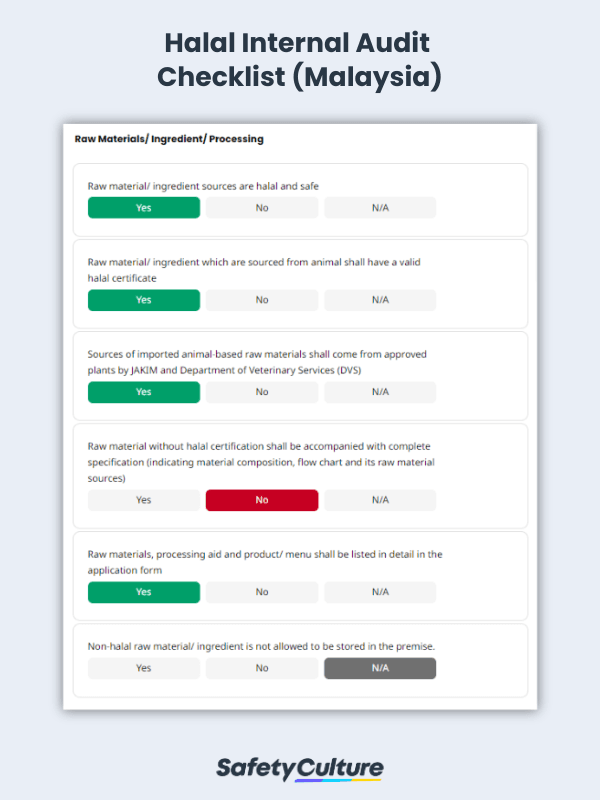What is “Halal” food?
Halal literally means “allowed” in Arabic and “Halal food” means food that is allowed or lawful as prescribed by the Koran. The opposite of halal is “haram” or forbidden by the Koran. Halal certified food ensures that the food produced is prepared in a way that is free from cross contamination or does not have haram ingredients.
What is a Halal Audit?
A halal audit aims to evaluate products deemed as halal to ensure that it fulfills the conditions stated in the halal requirements or guidelines. A halal audit generally involves checking and reviewing deemed halal food in compliance of the following:
- Halal product and ingredients
- Customer production process flow
- Onsite facility audit inspection (incl. production process, packaging, labeling and post production storage)
- Sanitation, recall, and other standard documentation and practices
The 3 Criteria of “HALAL”
In the efforts of getting certified, local halal-certification bodies will conduct an audit to determine its compliance against the following 3 criteria:
Lawful Food
This refers to whether the foods using the term halal are considered lawful under the Islamic Law. All sources of food are lawful except for the following sources:
- Food of animal origin – refers to the following animals: pigs, boars, dogs, snakes, monkeys, carnivorous animals (with claws and fangs), birds of prey, pests, animals forbidden to be killed in Islam (ants, bees and woodpecker birds), repulsive animals (lice, flies, maggots, and other similar), animals living on both land and water (e.g., frog, crocodiles), mules and domesticated donkeys, poisonous and hazardous aquatic animals, blood, and any other animals not slaughtered according ot Islamic Law.
- Food of plant origin – Intoxicating and hazardous plants except for types where toxin or hazard can be eliminated during processing.
- Drink – refers to alcoholic drinks and any other form that is intoxicating and hazardous.
- Food additives – refers to food additives derived from all items mentioned above.
Slaughtering
Lawful land animals under the Islamic law should be slaughtered in compliance with the following requirements:
- The person in charge should be a Muslim who is knowledgeable of the Islamic slaughtering procedures.
- The animal to be slaughtered should be alive at the time of slaughtering.
- The phrase “Bismillah” meaning in the Name of the Allah, should be invoked right after the time of slaughtering.
- The slaughtering device should be sharp and not to be lifted off the animal during the slaughter act.
- The slaughter act should sever the trachea, esophagus, and main arteries and veins of the neck.
Preparation, Processing, Packaging, Transportation and Storage
All food should be prepared, processed, packaged, transported and stored in the following conditions:
- Sections and lines where non-halal foods were previously produced should take the necessary measures that prevent contact between halal and non-halal foods.
- Facilities that were previously used for non-halal foods should be properly cleaned and adhere to relevant Islamic requirements.
What is a Halal Internal Audit Checklist?
A Halal internal audit checklist is used by quality and safety managers in the food production industry to ensure that the food production process and the food product adheres to the requirements of Halal certifiers.
Getting a Halal Certification
Having the Halal certification allows food producers the opportunity to partner with institutions and provide food products to markets and regions that require Halal certification.
5 Steps to Prepare for Halal Food Certification
- Understand the requirements of the local Halal certifiers. Different countries have different certifiers that will provide the certification valid for that country only.
- Review your organization’s ingredient sourcing and food production processes to determine which steps in production may need to be improved or changed in order to be compliant with the requirements of the certifier.
- Implement changes to your production processes, if needed, and conduct internal audits to ensure that the changes implemented are followed and that the production steps are documented.
- Analyze the results of the internal audits to discover areas for improvement and use the information to create training programs for employee competency.
- Contact the Halal certifier and schedule the Halal food certification audit.



